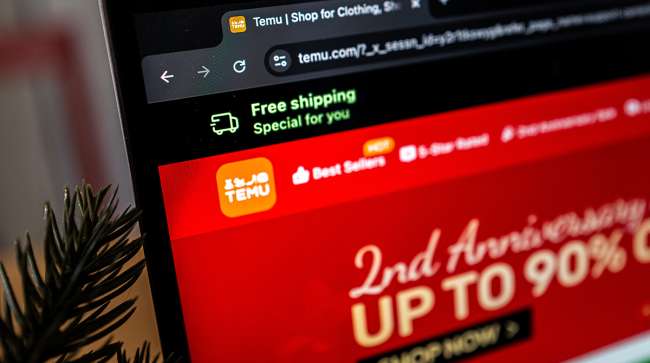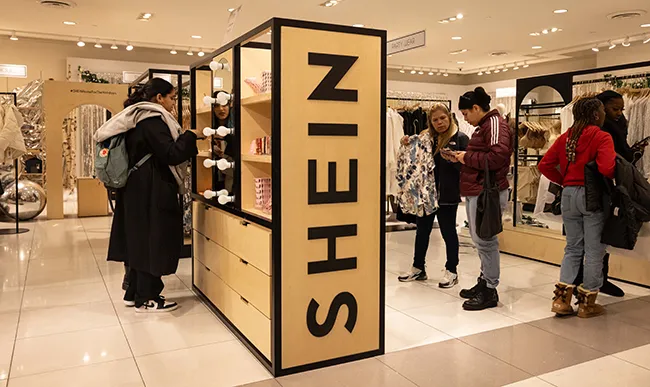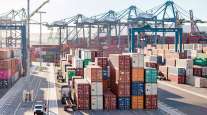Logistics Agents Put 30% Levy on Shein, Temu Retailers

[Stay on top of transportation news: Get TTNews in your inbox.]
Chinese retailers that sell on Shein and PDD Holdings Inc.’s Temu platform say they have been asked by logistics agents to start paying an additional 30% levy after President Donald Trump hiked tariffs on goods imported to the U.S. from China and Hong Kong.
The vendors received notifications about the new prices they would be charged by their logistics agents late Feb. 5, according to a memo seen by Bloomberg. The extra 30% of the retail value of the goods being sold must be paid in the form of a deposit, which agents will then return or ask to be topped up depending on the actual tax charges from U.S. customs.
Retailers also told Bloomberg that they’re worried about the possibility of significant logistical delays because it’s not clear how much extra time the customs clearing process may take.
The added stress comes as the U.S. Postal Service flip-flops on inbound international packages from China and Hong Kong. Just hours after the mail service earlier this week announced it was suspending some shipments, it reversed that decision, saying it was working with Customs and Border Protection to “implement an efficient collection mechanism for the new China tariffs to ensure the least disruption to package delivery.”
ALERT! Updated Information on International Inbound Mail and Packages from China and Hong Kong Posts. Learn more: https://t.co/Zc7yof95Bm pic.twitter.com/DGZoNHGvVL — U.S. Postal Service (@USPS) February 5, 2025
USPS ranks No. 4 on the Transport Topics list of top global freight carriers.
As well as a new 10% tariff on goods, Trump has revoked a “de minimis” rule for China, which had allowed small packages under $800 to enter the U.S. duty-free. The vast majority of the clothing and other household goods purchased on Shein and Temu would fall into that category.
Wang Lun, a sales manager at a Guangzhou-based cross-border retailer that sells sweaters and jackets on Temu, Tiktok and Amazon.com, said he’s had a messy time of it over the past 24 hours.
The initial news from USPS took him by surprise and he has struggled to answer client inquiries. Wang said he feels he must just pay whatever the logistics agents are asking for, even if that means losing money.
“We have to work our best to keep customers happy and convince them to stay,” he said. “I’ve spent the past five years working night and day to grow the store. It would all turn to nothing if my reputation is damaged now.”
Last year, companies including Shein and Temu shipped some $46 billion of small parcels to the U.S. that had a declared value of less than $800, according to estimates from Nomura Holdings Inc. That represented about 11% of all U.S.-reported imports from China.

A Shein pop-up store inside a Forever 21 store in New York. (Yuki Iwamura/Bloomberg)
Tariffs of 10%, on top of other new costs, could decrease such shipments and cut export growth by 1.3 percentage points, reducing China’s gross domestic product expansion this year by 0.2 percentage points, Nomura economists including Ting Lu wrote in a note.
USPS is a popular option among Chinese online retailers for domestic delivery once their products arrive in North America because it’s cheap and extends to remote locations.
Chinese vendors also say that any suspension of packages would significantly harm their business, potentially resulting in closures of factories that are already running on sliver-thin margins.
Host Seth Clevenger and TT's Connor Wolf discuss CES 2025 and the emerging technologies that could push the trucking industry forward.. Tune in above or by going to RoadSigns.ttnews.com.
“Unless China’s government announces effective measures to fight back, it would be devastating to online platforms like Temu and Shein, as well as small factories,” said Andy Guo, an online retailer of electronics products and founder of Waimaojia, a media platform for the cross-border e-commerce industry.
Washington is cracking down on a loophole that retailers like Temu and Shein have used for years to expand in the U.S., allowing them to ship high volumes of small packages and gain an edge over competitors like Amazon.com Inc. Critics say the flood of parcels from China is difficult to track and may contain illegal or dangerous goods.
Amazon ranks No. 1 on the Transport Topics Top 100 list of the largest logistics companies in North America and No. 1 on the TT Top 50 Global Freight carriers list. It also ranks No. 12 on the TT Top 100 private carriers list.
For China’s exporters, however, the cross-border e-commerce has been a life saver amid a sluggish domestic economy and local oversupply after the U.S. imposed higher tariffs on China.
According to Guo, retailers in China, anticipating such retaliation since May — when U.S. customs suspended multiple brokers from importing small packages without paying duties and taxes — have reduced the proportion of their sales on platforms that heavily rely on small-parcel models.
Still, the situation is particularly acute for low-value products like socks, fashion accessories and other daily goods, where the “suspension of a cheap logistics solution would mean much bigger harm,” he said.
Want more news? Listen to today's daily briefing above or go here for more info
Several suppliers involved in the negotiations with the online platforms said factories have no room to lower prices because their profitability has already been squeezed to the limit. They declined to be identified discussing sensitive matters that are not public. They also warned that any suspension is likely to mean higher purchase costs for American consumers and longer shipping times for all but hot-selling items that are sent in bulk to overseas warehouses.
Wang, the manager from Guangzhou, said he expects an instant sales drop if the small-package suspension were to be put in place.
“This is our most commonly used delivery method, and so we either have to suffer a reduction in orders or we’re forced to supply goods at an even lower price,” he said.





